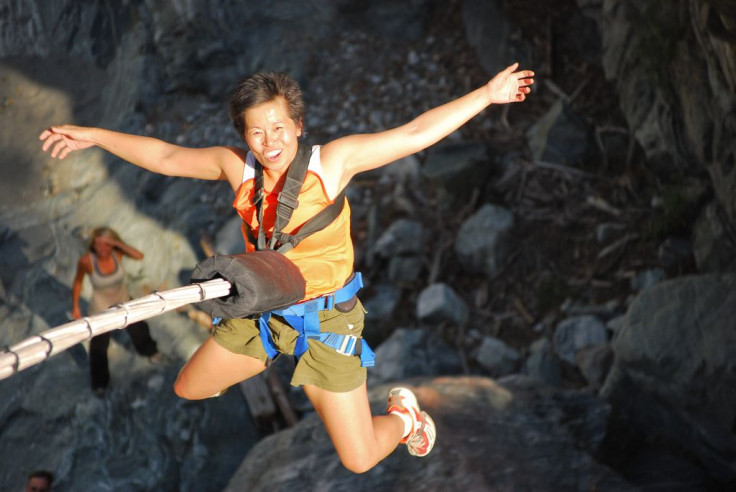Risky Business: When People We Trust Take Chances, Hard Choices Come Easier

Sorry, Mom. If everyone I knew jumped off a bridge, science says I’d be more likely to jump with them.
New research into how people judge risks and make decisions suggests we often turn to the people around us for information about what’s right. That decision may be dangerous, such as putting all our money on black or doing hard drugs. But imagine the countless businesses that never would have made it off the ground had it not been for the founder’s goading friend. Or consider the thousands of people who never would’ve taken the leap of buying a gym membership, held back by insecurity, if not for the reassurance that everyone starts somewhere. Risks can be positive, too.
“We've known for a long time that people are influenced by others,” said George Christopoulos, assistant professor at Nanyang Business School in Singapore. The latest study takes the understanding a step further, putting subjects inside an fMRI scanner to measure brain activity as they made gambling decisions. Each participant had the choice between a guaranteed $5 win and a 50 percent chance of winning $10. In one condition, they made the decision independently. In the other, they made it after seeing what others had picked.
Ultimately, when people made the decision after seeing what other subjects had chosen, their own decision tended to follow suit. To the researchers, this suggested a “birds of a feather” phenomenon: Despite the risks being mostly equal, participants saw added value — indeed, added safety — in others’ decisions. As a result, they followed the group.
“No one knows how the gambles will play out, but people still tend to conform with others,” said Dongil Chung, the study’s first author and research associate at the Virginia Tech Carilion Research Institute. “The likelihood that you will be nudged depends on how much you value what others say.”
It isn’t earth-shattering to argue people make decisions based on advice they trust, even if that advice is in the form of a decision or behavior. People lead by example, and we follow just as faithfully. What the study reveals, the team argues, is a more discreet system of value extraction that occurs when we make those choices. The fMRI scans showed activation in subjects’ ventromedial prefrontal cortex, a brain region responsible for handling reward and values. Social proof doesn’t just make us feel more comfortable with our choices; it leads us to see them as more meaningful.
Pearl Chiu, senior author on the paper and an assistant professor in psychology at Virginia Tech, says we can use this information to our advantage. Staying aware of our baseline aversion or draw to risk-taking, we can surround ourselves with people whose behavior moves us closer to our goals. We can keep friends that continually challenge our notions of safe, thereby getting us out of our comfort zones. And we can delete friendships that get us acting against our self-interest.
"Risk simply means the outcomes are uncertain, and some risks are healthy such as trying out for a sports team," Chiu told Medical Daily in an email. "Our data show that social forces are motivating for both riskier and safer choices, and one way to encourage positive/healthy choices might be to surround yourself with others who are making similar choices to those you would like to make (e.g., exercising, eating more healthily, recycling)."
Chung echoed the sentiment, emphasizing that “who you are is as important as who you are with.” He does, however, add the caveat that taking cues from others still comes with its limits. I might jump off the bridge if there’s a harness connecting my ankles to the bridge, but no amount of peer pressure could get me off the edge without one.
Source: Chung D, et al. Nature Neuroscience. 2015.
Published by Medicaldaily.com



























